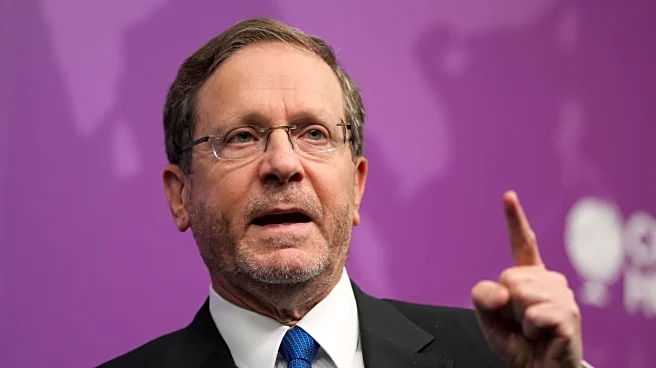What's Happening?
In 2025, the frequency and sophistication of cyberattacks on government agencies have significantly impacted the tech stock market. Notable incidents include ransomware attacks in U.S. states like Ohio and Puerto Rico, and breaches at critical infrastructure providers such as Co-op UK and Qantas. These events have highlighted vulnerabilities that have led investors to reassess the risk profiles of technology firms. The financial impact is substantial, with global cybercrime costs projected to reach $10.5 trillion annually, and the average cost of a data breach at $4.4 million. This has resulted in volatility in tech stocks, with companies like Microsoft and Google experiencing short-term dips in share prices due to disclosed vulnerabilities. However, there is a shift towards a more mature approach to cybersecurity, with 49% of companies planning to increase cybersecurity budgets post-breach, down from 63% in 2024.
Why It's Important?
The cybersecurity vulnerabilities in government agencies have broader implications for U.S. industries and investors. The volatility in tech stocks reflects a growing concern over cybersecurity as a central determinant of corporate resilience and investor confidence. Companies that demonstrate proactive governance, such as adopting zero-trust architectures and AI-driven threat detection, are increasingly favored by investors. The U.S. Department of Justice's Civil Cyber-Fraud Initiative has heightened the urgency for robust cybersecurity frameworks, leading to high-profile settlements with companies like Illumina, Inc. and Hill ASC Inc. These developments underscore the financial liabilities associated with noncompliance and highlight the importance of cybersecurity in maintaining investor trust and corporate stability.
What's Next?
The ongoing cybersecurity challenges are likely to spur further strategic investments in cybersecurity firms and IT governance solutions. Companies addressing AI-driven threats and supply chain vulnerabilities are expected to attract significant investor interest. Government contracts are increasingly favoring firms with proven compliance frameworks, which could lead to more competitive advantages for companies adhering to standards like NIST and DFARS. The private sector's adoption of modernization technologies, such as hybrid cloud architectures, is influencing government spending, with global cloud investments projected to reach $1.8 trillion in 2025. Investors will need to prioritize cybersecurity as a cornerstone of their portfolios to navigate the evolving landscape.
Beyond the Headlines
The cybersecurity landscape in 2025 presents a paradox where breaches expose systemic weaknesses but also catalyze strategic investments. The path to profitability in this sector involves overcoming challenges like maintaining legacy systems, which consume a significant portion of IT budgets. Companies that can transform vulnerabilities into opportunities through innovation and governance are likely to emerge as winners. The emphasis on cybersecurity compliance and technological innovation will continue to shape the competitive dynamics in the tech industry.










